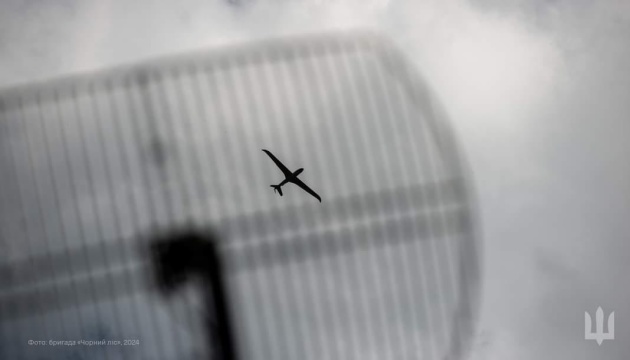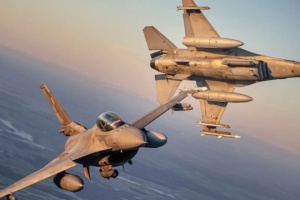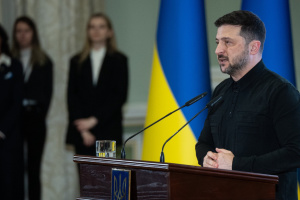
Combat operations in Ukraine prove crucial importance of drones and AI in modern warfare - Borrell
EU High Representative Josep Borrell wrote about this in his blog published on the website of the European External Action Service. He made his remarks following his participation in the COTEC conference on technological sovereignty in defense, which took place in September in the Spanish city of Las Palmas.
“The war against Ukraine has provided a window into the future of warfare: ground robots will do everything, from reconnaissance to direct attacks. Russia has already deployed unmanned vehicles that can launch antitank missiles, grenades and drones. Ukraine has used robots for casualty evacuation and explosive disposal. Aerial drones have already been successfully complementing tanks. Maritime drones have neutralised much of Russia's on-paper advantage at sea, reopening the Black Sea,” Borrell wrote.
Borrell noted that drones have also made warfare much more asymmetrical: a swarm of cheap drones (€500 per unit) can immobilise a battle tank, and even a much costlier F-35 would struggle to fight them.
According to the EU High Representatives, the battle in Ukraine increasingly turned to drone warfare, commercial drones provided the blueprint for the drones the Ukrainian army is currently using to target tanks.Artificial Intelligence is already used in autonomous weapons, cyber operations and surveillance. AI models in drones help avoid obstacles and identify potential targets in Ukraine. And AI systems can use data gathered by sensors in robots and drones to map the battlefield and predict points of attack.
In addition, he noted, there is increasing dependence on space assets: a modern soldier relies a staggering 80% on space services for communication, positioning and operating various weapon systems.
The next milestone in this trend may well be quantum technology. Borrell wrote that it will have enormous military applications: from decrypting secure communications to enabling GPS-independent navigation, thereby overcoming jamming devices. Fortunately, European research institutes are among the global leaders in this technology.
Borrell warned European manufacturers and researchers against over-reliance on imports, especially from suppliers that do not belong to the EU's strategic allies.
For instance, just one Chinese company (DJI) controls an estimated 70 percent of global commercial drone production. But this does not mean autarky: we should expand, and leverage better our partnerships with trusted third countries, Borrell wrote.
“Europe stands at a critical juncture. While we have made progress with initiatives like the European Defence Fund and the Hub for EU Defence Innovation, we need to act more boldly. In a world full of war and unrest, we must think big again; investing heavily in key technologies like AI, drones, and space capabilities, and helping our defence industry unlock its potential,” the EU High Representative stressed.
As reported, in May 2024, the EU-Ukraine Defence Industries Forum was held in Brussels with the participation of more than 350 companies and organizations, during which EU High Representative Josep Borrell announced the EU's intention to open an EU Innovation Office in Kyiv by the end of the year.




